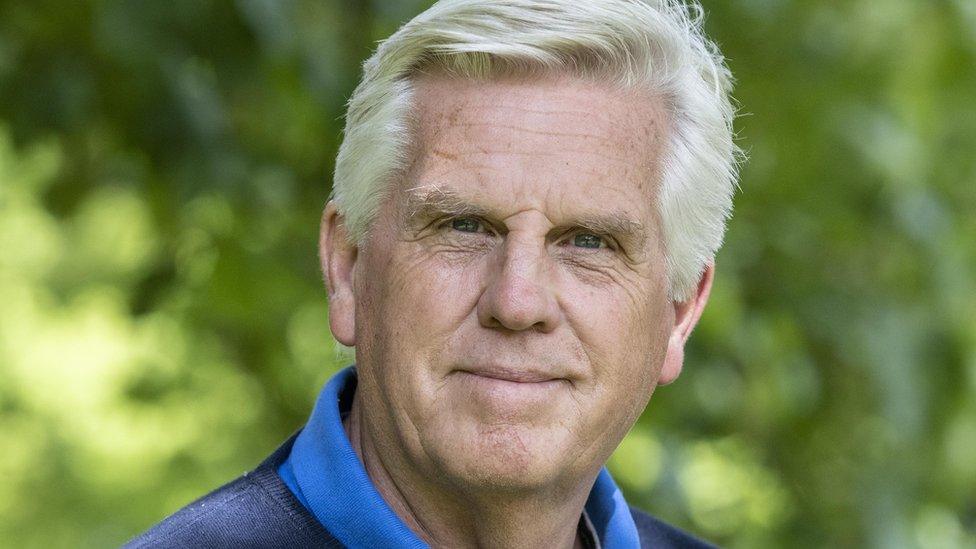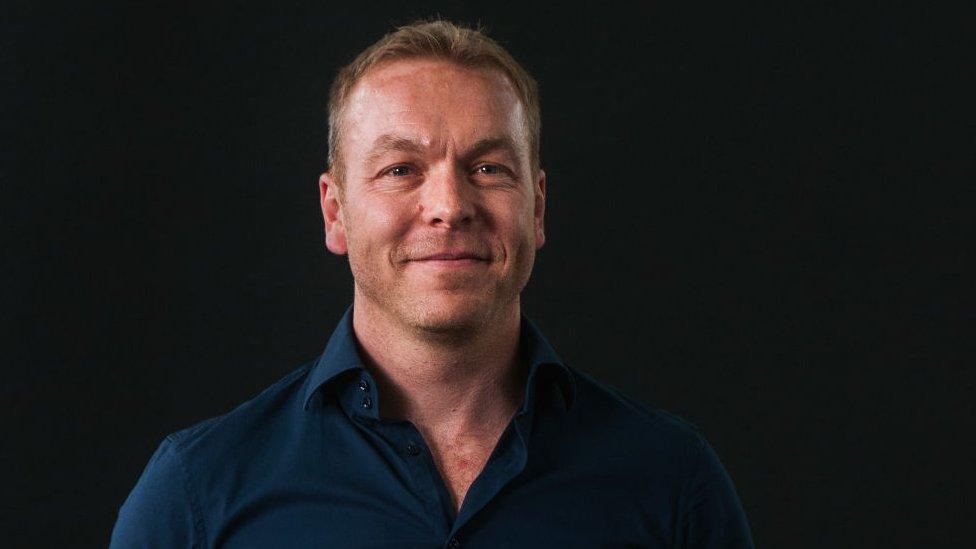Steve Rider: Sports presenter to have surgery after prostate cancer diagnosis
- Published

Rider covered events such as the Olympics and Wimbledon for the BBC for many years
Sports presenter Steve Rider is encouraging other men to get checked after revealing he was diagnosed with prostate cancer last month.
The 73-year-old broadcaster, who hosted the BBC's Grandstand and Sportsnight, will have an operation this weekend.
Rider said his doctors told him it was an "opportunity to have significant surgery and cure the whole thing".
He told BBC Breakfast he was diagnosed about two months ago and considered himself to be "extremely lucky".
He explained: "I'm a total convert to getting yourself checked early and getting the diagnosis done early and getting remedial measures in place as soon as possible.
"I'm living proof of that and very grateful to be operated on on Saturday."
Rider said he got tested after one of his friends was diagnosed with the cancer following a medical check.
He also praised fellow broadcaster Nick Owen for raising awareness after revealing his own diagnosis in August.
Rider said that after his first check-up, where his reading "was a little bit high", his wife urged him to get further examinations.
Allow X content?
This article contains content provided by X. We ask for your permission before anything is loaded, as they may be using cookies and other technologies. You may want to read X’s cookie policy, external and privacy policy, external before accepting. To view this content choose ‘accept and continue’.
He learned of his diagnosis the day after taking part in fellow presenter Jeff Stelling's latest charity Football March - from Wembley Stadium to the home of Wycombe Wanderers - in honour of his former BBC colleague Bill Turnbull, who died of prostate cancer last year.
"I was getting the result of my biopsy the day after this, and I was assuming I'll be looked after for the next six months, regular check-ups.
"They came in and said, 'No, we need you operated on as soon as possible, clear your diary for the next three weeks. It's all contained within the prostate so it gives us the opportunity to have significant surgery and cure the whole thing that way.'
"'If it becomes more advanced, then the future is a little bit more bleak for people. But we have managed to catch it in time that surgery is really going to knock this on the head.'"
Rider, who said he was able to finish filming the British Touring Car Championship for ITV on Sunday, added that he felt "fine" and had "no symptoms" before or after his diagnosis.
He encouraged others to look at the risk checker on the Prostate Cancer UK, external website, and anyone with "any doubts" to "get yourself tested" because "it can save your life".
The charity has said the disease affects one in eight men in the UK. More than 12,000 men die every year from the condition.
What are the symptoms?
There can be few symptoms of prostate cancer, external in the early stages, and because of its location most symptoms are linked to urination:
needing to urinate more often, especially at night
needing to run to the toilet
difficulty in starting to urinate
weak urine flow or taking a long time while urinating
feeling your bladder has not emptied fully
Men with male relatives who have had prostate cancer, black men and men over 50 are at higher risk of getting the disease.
